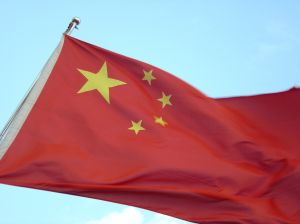Just two months after Australia trashed its carbon price because it was “too high” and would “trash the economy”, China has flagged that its planned carbon trading scheme will cover 40 per cent of its economy and be worth up to $65 billion.
The National Development and Reform Commission (NDRC), China’s top economic planner, this week outlined its initial plans for a nationwide market to slow down the rapid growth of greenhouse gas emissions in China.
The NRDC said it is likely to regulate 3 to 4 billion tonnes of carbon dioxide (nearly 8 times Australia’s entire annual emissions) by 2020 and the market will be worth up to 400 billion yuan ($65 billion).
This would make the market twice as big as the EU market, which is currently the world’s biggest. China plans to start a national market in 2016.
Dr Frank Jotzo, from ANU’s Climate Change Institute, and an expert on carbon markets, said the scheme as outlined by NRDC officials suggests a carbon price of around $18 a tonne, compared to Australia fixed price of around d $25/tonne and the EU price of around $10/tonne.
“It’s no surprise that there will be a national emissions trading scheme in China,” Jotzo told RenewEconomy. “What did come as a surprise was the announcement that the plan is for a 2016 start, when most experts were expecting a start closer to 2020.
“It is notable to that the NDRC are putting forward a price expectation for the scheme. With a predicted “value” of up to 400 billion yuan by 2020 and coverage of three to four billion tonnes of carbon dioxide, the implicit price expectation put forward by the NDRC is in the region of 100 yuan or $18 per tonne. This is higher than any of the major current emissions trading schemes in the world.”
Jotzo says that the Chinese government is sending a signal that it is serious about further strengthening domestic climate change policy.
This, he said, should be seen in the context of the upcoming climate talks, where all countries are expected to put post-2020 targets on the table early next year.
“It is a fair bet that China will be a force to drive stronger global climate action,” he said.
“This will require much more than just introducing an ETS. To make carbon pricing work properly, China will need market reform in its energy sector: liberalising prices, and giving state owned enterprises incentives to make decisions more on the basis if expected profits.”
Reuters reported that the NDRC plans will cover around 40 per cent of China’s total emissions, according to a presentation delivered by Jiang Zhaoli, director of domestic policy and compliance in the NDRC climate change department.
The NDRC expects the emission permit futures market to be worth 60-400 billion yuan ($10-$65 billion) annually by 2020, with a smaller spot market with a value of around 1-8 billion yuan, according to the presentation seen by Reuters.
Reuters said that Jiang’s presentation was based on China removing a ban on futures trading in carbon permits, something experts have said is necessary to make the market work.
Reuters said:
The scheme as outlined would regulate around twice as many tonnes of CO2 as are currently included in the European Union emissions market and could double the value of the global market.
Jiang said China would bring in even more emitting sectors after 2020 and would also seek ties to international markets in the next decade, but the presentation gave no further details.
It showed that Beijing plans to let central government decide the amount of permits that will be handed out to companies, create and operate the permit registry and set the rules for how emissions are monitored, reported and verified.
Since last June, China has launched seven regional pilot carbon markets in a bid to gain some experience before the national scheme begins.










